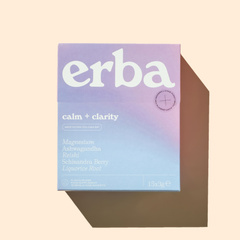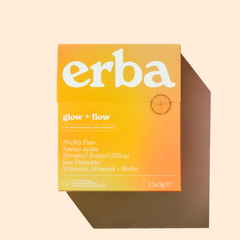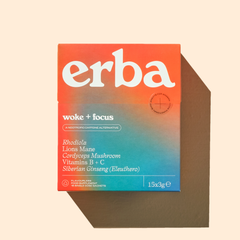Adaptogens vs Nootropics
Mental strength combines an individual’s energy, resilience, and emotional intelligence to overcome difficult situations, maintain a positive outlook, and achieve personal goals. While different practices may be effective for different people, Ayurveda has proven to be a holistic system that balances the body, spirit, and mind for optimal health.
Ayurveda considers mental health an integral part of overall well-being and offers a variety of practices and treatments that can help to improve mental strength, from meditation to herbal remedies, lifestyle changes, and particularly diet.
Ayurveda highly emphasizes the role of diet in maintaining health and promoting healing through “Rasayanas.” Ayurvedic practice suggests these superfoods nourish the body, boost immunity and enhance vitality. Today, we highlight two Vedic superfoods that help improve and stimulate mental performance – adaptogens and nootropics.
What Are Adaptogens
Adaptogens are natural substances, usually herbs or mushrooms, that help the body cope with stress and promote overall health and well-being. These substances regulate the body’s stress response, improve energy levels, and enhance human immunity.
As you would expect, adaptogens are prevalent ingredients in traditional medicine practices, from Ayurveda to Traditional Chinese and Siberia folk medicine. However, they have recently gained popularity in the western world as a natural way to support the body’s stress response and promote resilience. Some examples of adaptogens include Rhodiola, Ginseng, Holy Basil, and Ashwagandha; the last two are common Ayurveda superfoods. In Ayurveda, these herbs are known as Rasayanas, a Sanskrit word for rejuvenation.
Rasayana Medicines
Rasayana means therapeutic procedure or preparation that, on regular practice, will boost nourishment, health, memory, intellect, immunity, and hence longevity. Ayurveda also describes Rasayana drugs made from a combination of herbs, minerals, and other natural substances to be used singly or as compounds.
Many of these medicines are in use today; for instance, Chyawanprash and Brahma Rasayana are popular composites, while Amalaki, Pippali, and Amrita, among others, are popular single drug Rasayanas.
What are Adaptogens used for?
Stress is a natural part of life and can come from various sources, such as work, relationships, and daily life. However, recent times have seen more people exposed to higher stress levels. This results in an extensive release of hormones, such as cortisol and adrenaline, which can lead to several physical and mental symptoms.
Adaptogens aim to counter these effects by regulating the body’s stress response, enhancing immune function, and improving energy levels. Adaptogens achieve this by controlling the body’s hypothalamic-pituitary-adrenal (HPA) axis, the central stress response system. This process limits stress hormone release, ensuring the body adapts and copes better with stress.
In addition to their stress-reducing properties, adaptogens provide several other health benefits due to their anti-inflammatory, anti-aging, and neuroprotective properties. Ultimately, the purpose of adaptogens is to support the body’s natural ability to adapt to stress, promote balance, and support overall health.
What Are Nootropics
Nootropics are natural or synthetic substances that improve cognitive function, memory, creativity, and motivation. These substances are cognitive enhancers or smart drugs because they enhance productivity, focus, and mental clarity. Nootropics function in several ways, including increasing blood flow to the brain, boosting neurotransmitter levels, and protecting the brain cells from damage.
Natural nootropics are primarily in the form of herbs or amino acids, while others are developed as synthetic compounds. Some examples of nootropics include caffeine, modafinil, Omega-3 fatty acids, and Bacopa Monnieri. The last example is a herb used prevalently in Ayurvedic medicine. In Ayurveda, these herbs are known as Medhya Rasayanas, a Sanskrit word for intellect or retention.
Medhya Rasayana
According to the Vedic texts, several types of Rasayana are supposed to promote both the body and mind, yet, some have a more significant influence on the mind and improve mental competence. Such Rasayanas are called Medhya Rasayana. Medhya Rasayana is a term used in Ayurvedic medicine to describe a group of herbs, minerals, and other natural substances that rejuvenate the brain and nervous system.
Medhya Rasayana is a more comprehensive approach to achieving a higher brain function while reducing mental fatigue and stress. Ayurveda also highlights four primary Medhya Rasayanas, each of which offers unique properties to the brain – Shankhapushpi, Giudice, Mandukaparni, and Yastimadhu.
What are Nootropics used for?
Humans have neurotransmitters that act as chemical messengers in transmitting signals in the brain and nervous system. These neurotransmitters are essential for communication between nerve cells, which allows the nervous system to control various bodily functions, including cognitive behaviors.
Nootropics look to enhance these cognitive functions, memory, creativity, and motivation by impacting various neurotransmitters, enzymes, and other brain chemicals involved in cognitive function. Nootropics are ideal for individuals looking to improve their mental performance and enhance focus and memory.
It is important to note that while nootropics may enhance cognitive functions, they work best as supplements to a healthy diet and lifestyle rather than a substitute for them. Managing stress levels is also crucial for overall mental health, making nootropics a good blend with adaptogens.

Benefits of Adaptogens and Nootropics
The primary aim of nootropics and adaptogens is different. While nootropics enhance brain health and performance, adaptogens focus more on reducing mental and physical stress. Many of their benefits often crossover because some herbs can act as both adaptogens and nootropics. Here are some benefits peculiar to both substances:
- Stress Reduction
While adaptogens are most known for this benefit, some nootropics have been shown to help reduce stress and promote relaxation. For instance, nootropics like L-theanine work similarly to adaptogens in promoting relaxation without sedation.
- Memory Enhancement
Some adaptogens like Bacopa Monnieri and Panax Ginseng are known to improve memory and cognitive functions and function similarly to nootropics such as Piracetam.
- Mood Improvement
Both adaptogens and nootropics can help improve mood and reduce symptoms of anxiety and depression. For example, adaptogens like Rhodiola and nootropics like caffeine have antidepressant effects that can improve mood and reduce fatigue.
- Brain Protection
Both substances feature neuroprotective effects, which helps to protect brain cells from damage and reduces the risk of neurological disorder. Turmeric and Omega-3 fatty acids support brain health and reduce the risk of cognitive decline.
Conclusion
While adaptogens and nootropics can have overlying benefits for stress reduction and cognitive improvement, how they act and their effects can vary widely. As such, supplements that incorporate these ingredients are ideal in most instances. It is also essential to consult with healthcare providers before taking any supplements, including adaptogens and nootropics, to ensure they are safe and appropriate for your needs.










